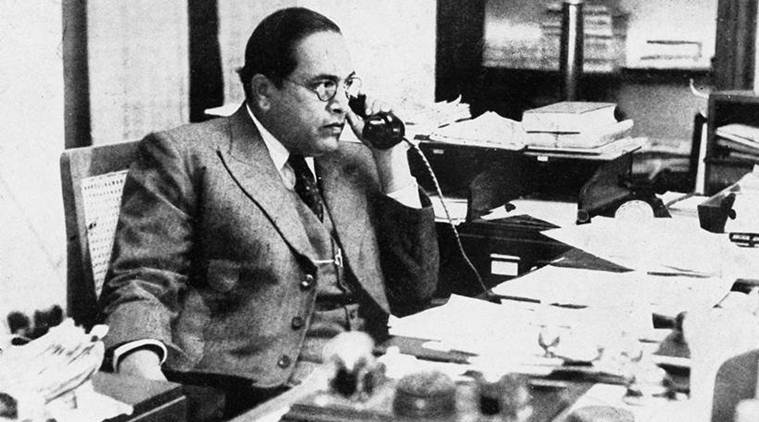Every Indian citizen could seek to understand Ambedkar’s philosophical contribution toward sociological interpretations of gender, caste, and cultural issues; the Indian economy and class question; ideas of politics such as nation, state, democracy, and law and constitutionalism.
Babasaheb Bhimrao Ramji Ambedkar is arguably one of the most highly esteemed and idolized figures in India and is regarded as a symbol of hope and empowerment for marginalized communities. He is primarily known as the father of India's Constitution, which upholds individual rights and promotes social justice.
The statue of Dr. Bhimrao Ramji Ambedkar holds profound significance for the marginalized communities in India, transcending its physical form. It serves as an emblem of optimism and embodies the tireless struggle of the oppressed to assert their rights that were deprived for an extended period. It is noteworthy that the statue showcases a book, not Ambedkar's ground-breaking work "Annihilation of Caste," but a copy of the Indian constitution, where he played an essential role in shaping it. Despite his significant contribution as the architect of democratic India, Ambedkar is often remembered more for his instrumental role in the emancipation of the Dalit community.
Dr. Ambedkar espoused the belief that education was a potent weapon in liberating socially marginalized individuals from illiteracy, ignorance, and superstition.
He was a resolute advocate for gender parity and fought for women's equality in domains such as inheritance and marriage. He possessed a lucid vision for empowering women and laboured unstintingly to dismantle the obstacles that impeded their progress in India. The inspirational life, ideas, and vision of Dr. Ambedkar serve as a testament to the criticality of governing the country with unwavering dedication, constructive mindset, prudent planning, optimal exertion, concerted initiatives, and unyielding determination.
Ambedkar’s life becomes an important case study due to the numerous challenges faced by Ambedkar in a society that stigmatized his community, as well as his unwavering resolve to overcome every obstacle. For a great time, we have heard about Ambedkar's struggles to make untouchability illegal, his disagreements with other influential figures of his time, such as Gandhi and Nehru, and his resolute determination to create a forward-thinking Constitution for India that included individual rights and contemporary notions of social justice. Therefore, every Indian could seek to understand Ambedkar’s philosophical contribution toward sociological interpretations of gender, caste, and cultural issues; the Indian economy and class question; ideas of politics such as nation, state, democracy, and law and constitutionalism. It is hard to fully understand just how impressive Ambedkar's achievements were, given his background.

Born in 1891 into a poor family of the Mahar sub-caste which was seen as ‘untouchable’ at the time, he rose to become India's first law minister in the impressive cabinet of New Delhi. Despite being from a community that faced discrimination for centuries, he managed to become a successful lawyer in London and became the chair of the Constitution Drafting Committee. Despite being born to illiterate parents, Ambedkar authored numerous books that reflected his broad knowledge and sharp intellect.
Ambedkar not only overcame the obstacles in his life but also achieved an extraordinary level of success that would have been impressive for a child of privilege. He was among the first Dalits to attend an Indian college and was one of the earliest Indian students to study in the US he received several doctorates from the University of London and Columbia University in economics, politics, and law. During his time at Columbia University, Ambedkar delivered a paper entitled "Castes in India: Their Mechanism, Genesis and Development" at an anthropology seminar hosted by Dr. Goldenweizer. In his paper, Ambedkar stressed the importance of understanding the complexities of caste as an institution, which he believed required a comprehensive explanation. Despite the attempts of many scholars before him to unravel the intricacies of caste, Ambedkar believed that it remained largely unexplained and misunderstood. He acknowledged that the issue of caste is vast and has been challenged both theoretically and practically. Ambedkar argued in his paper that if caste persists in India, Hindus will be unlikely to intermarry or engage in social interaction with those outside their caste. He also warned that if Hindus were to migrate to other parts of the world, the problem of Indian caste would become a global issue.

Ambedkar argued in "Annihilation of Caste" that eradicating the caste system is a more difficult task than achieving self-rule or Swaraj. While fighting for Swaraj, one has the support of the entire nation, but in the battle against the caste system, one must fight against the entire nation, including one's people. However, Ambedkar emphasized that the annihilation of caste is more important than Swaraj because having Swaraj is meaningless if one cannot protect it. According to Ambedkar, Hindu society must become casteless before it can become strong enough to defend itself. Without this internal strength, achieving Swaraj for Hindus may only lead to enslavement.
Ambedkar's life story, from his modest upbringing to his extraordinary accomplishments, is truly inspiring. However, there is a widespread belief that his achievements have not yet received the recognition they deserve in history. While some acknowledge his tireless efforts to combat discrimination against Dalits and his crucial role in drafting the Constitution, they often overlook his comprehensive political and economic vision. Also frequently, those who claim to be supporters of Ambedkar overlook his criticisms of Indian democracy, his aversion to Hindu majoritarianism, and his leftist approach to political economy and labour rights. Rather than engaging in a constructive dialogue with his views, they choose to idealize him, disregarding his advice against blind devotion.
Ambedkar's efforts to eradicate social inequality and discrimination in society are reflected in the provisions of the Constitution. The goal of the Constitution, as envisioned by Ambedkar and the other founding fathers, was to establish an egalitarian society, where everyone had equal rights and opportunities. They believed that political and individual freedoms were meaningless without reducing the vast disparities in society.
The Indian Constitution is remarkable for its focus on human rights and its attempt to balance individual rights with social justice. The overall philosophy is based on a dialogue between individualism and state control, seeking to achieve a balance between civil and political rights and social and economic rights.
The profound issues he highlighted through his life, struggles, studies, and experimentation with ideas are still relevant today, and the fundamental questions he raised about Indian society remain unanswered. But Ambedkar's legal vision, which is enshrined in the Constitution of the republic, continues to endure. Ambedkar's exceptional intellect and writing skills were instrumental in leading an ancient civilization like India toward modernity.
Ambedkar's greatest legacy is the ideas he gave, which place a strong emphasis on individual rights over communitarian privileges.
He advocated for modern conceptions of social justice over traditional ideas and championed the use of democracy and legislation to drive change, rather than the influence of those in power. Despite a Hindu society that was divided and fragmented, Ambedkar succeeded in instilling a sense of collective pride and individual self-respect in the Dalits, which transformed the lives of many future generations.
Gaurav Bisaria
.png)



